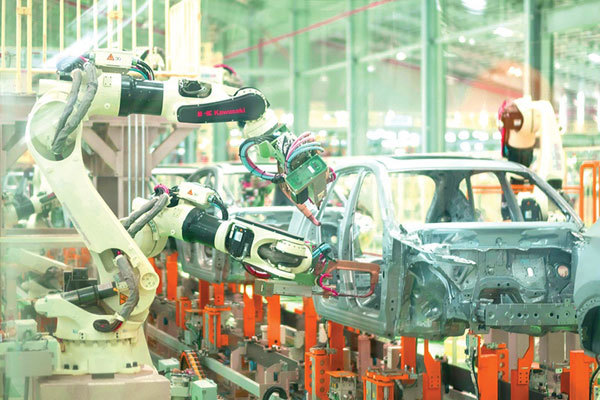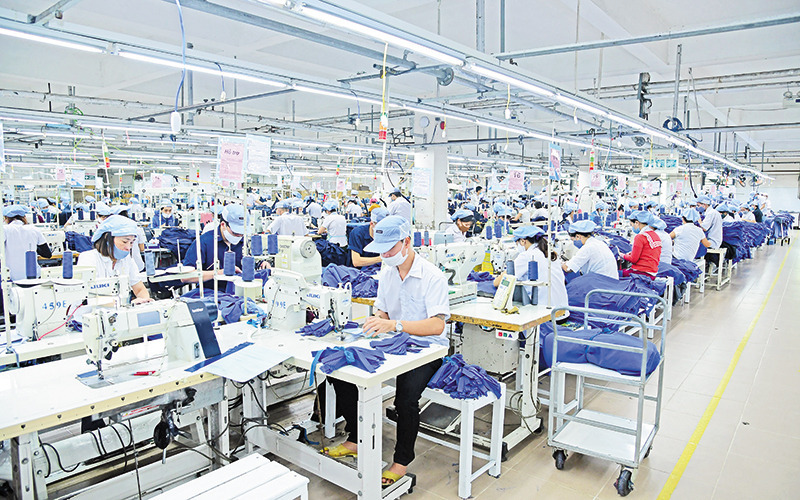 |
| Long-term tactics start to formulate. Illustration photo |
Nguyen Hoai Bao, vice president of wooden furniture exporter Scansia Pacific, explained to VIR that the company is maintaining the stay-at-work operation method with capacity of 20 per cent. “But in order to meet the increasing demand on orders, especially from foreign partners, we are building new plans to resume operations when the social distancing policy is loosened up,” Bao said.
“Building a plan for the short, medium, and long term is important, which will help us keep customers. Of course, applying them will depend on the events of the pandemic and the state’s requirement,” Bao added.
Scansia Pacific, which exports to the likes of the United States and Europe, has a total of 1,600 workers in normal times. Bao said that numerous orders from smaller overseas partners have been cancelled because the company cannot deliver the goods on time. But bigger and more traditional customers such as IKEA from Sweden, Walmart from the US, and John Lewis from the United Kingdom are still patiently waiting for Scansia’s products.
“However, this patience has a limit and if the social distancing policy is still tight in the southern region and manufacturers do not prepare strategies to resume operations soon, they will face the risk of losing large traditional partners as well as main export markets,” Bao said.
Almost all of the plans combine the factors of labour force, materials, markets, transportation, financial capacity, and saving operations.
“Among these factors, manufacturers are only proactive in arranging to save the operation process. Along with applying the stay-at-work model, we bought backup oxygen ventilators and set up a separate medical care area connected to local healthcare facilities to organise isolation and take care of patients while waiting for treatment at a higher level. The remaining factors depend on external influences,” Bao said.
Prime Minister Pham Minh Chinh has asked the Ministry of Health to finalise the overall strategy on pandemic prevention so Vietnam could return to a new normal next year. He assigned the ministry to provide guidelines on easing restrictions and restoring activities based on the principle of reopening step-by-step and remaining under control.
At a meeting with 70 medical experts in early September, the PM said that the government understands the country may have to live with COVID-19 instead of doing everything to eradicate it entirely. Accordingly, the government will ease restrictions instead of prolonging lockdowns forever.
“We have set the goal of containment and controlling the outbreak, but we have to know that this war is still a long one and we will have to live with the pandemic for a long time,” he said. “We cannot control it completely and we must adapt and have suitable ways to respond to the situation.”
At last week’s meeting with South Korean Ambassador Park Noh Wan and the South Korean business community in Vietnam, PM Chinh was told that many South Korean businesses are eager to see the Vietnamese economy reopen its doors as soon as possible. Many of them have already made scenarios for resuming operations after social distancing in many localities is loosened.
They also voiced their concern over the lack of articulate application of restriction measures to avoid disruption to supply chains and movement of goods, while urging simplification of the work permit process for foreign experts and more incentive tax policies.
According to the PM, the ongoing difficult situation is only temporary as Vietnam has been applying many measures to curb the pandemic, and the government has set up a task force to address the concerns of the business community. “The government has promulgated a resolution providing support for businesses, cooperatives, and business households affected by the pandemic,” said PM Chinh.
Sixty-two of the nation’s 63 cities and provinces have been affected by the pandemic since the latest wave emerged at the start of the summer. As of last week, 23 cities and provinces, especially in the southern regions, have applied the most stringent social distancing rules. Hanoi has gone through more than 50 days of social distancing and it looking to relax some rules in less at-risk areas, while the plan for easing social distancing in Ho Chi Minh City is expected to start in October.
Worldon Vietnam Co., Ltd., under Chinese textile and garment giant Shenzhou Group, is waiting for the day to take operations to a new level through Ho Chi Minh City Export Processing and Industrial Zones Management Authority. At present, the company is maintaining the stay-at-work method with one-third of workers (around 5,000 people) helping to complete urgent orders.
During the process of building plans for reopening operations, many companies like Worldon Vietnam are concerned about the speed of vaccinations and the regulations on colour-coded regions.
“At present, the ratio of vaccinations at Worldon is not that high, thus we hope that all employees will be offered vaccines as soon as possible. Another barrier is that the zoning on safe regions is too tight, causing difficulties to help more employees return to work,” said Zhou Gao Feng, general director of the company.
With the same opinion as the representative of Worldon Vietnam, Bao of Scansia Pacific said that ensuring the stability of the labour force is the key factor to help manufacturers resume operations. At present, 70 per cent of the company’s workers are inoculated but they cannot return to work because of the strict regulations in red zones.
“Almost all the company’s workers desire to come back to work. Entire strategies about the material sources, markets, finance, and more will become meaningless if the plan on taking employees back to work is not implemented,” Bao said. “Accelerating vaccination programmes and narrowing red zones to ward level is one urgent solution,” he said.
Source: VIR

Government urged to act promptly to both save businesses and protect people's health
Actions are needed now to save businesses, or it will be too late, enterprise associations say.

Foreign-invested enterprises urge prompt action to prevent recession
Foreign invested enterprises (FIEs) have suggested a strategy on controlling the pandemic in every area so as to safely restore production and business activities.